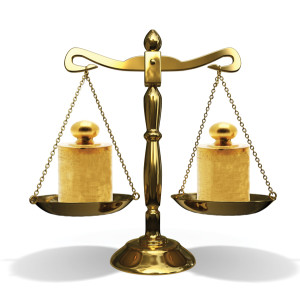 Only three names appear on every ballot in Arkansas in the May primary elections: Justice Courtney Goodson, Judge Kenneth Hixson, and attorney David Sterling, the three candidates running for Goodson’s Arkansas Supreme Court justice seat.
Only three names appear on every ballot in Arkansas in the May primary elections: Justice Courtney Goodson, Judge Kenneth Hixson, and attorney David Sterling, the three candidates running for Goodson’s Arkansas Supreme Court justice seat.
For voters, making an informed choice between the three can be challenging – like flying blind or at least with limited visibility. The Supreme Court race is nonpartisan, and we voters rely on those Ds and Rs by candidates’ names. Moreover, judicial candidates aren’t supposed to say how they would vote in particular cases – unlike, say, a congressional candidate who can promise not to cut taxes. The thinking is, if a judicial candidate reveals a preference beforehand, he or she can’t serve as an impartial jurist when it counts.
Outside groups, however, don’t have those limitations.
That’s been an issue these past two campaigns for Goodson, who has gotten on the bad side of a conservative national organization, the Judicial Crisis Network, that believes she’s too close to the trial lawyers. It’s one of those so-called “dark money” groups that doesn’t reveal its funders or how it’s spending its money. It poured money into Arkansas to help defeat Goodson when she tried to move up to chief justice in 2016, and now it’s spending big to get her off the court entirely.
If you’ve seen any ad about Goodson on TV or online or received a mailer, it probably came from that group. As of the end of March, she had raised less than $21,000 – not really enough to get on the air.
Those ads accuse Goodson of accepting lavish gifts from donors who have had cases before the court, and then asking for an $18,000 raise.
She disputes that, of course. This week, the Arkansas Judicial Campaign Conduct and Education Committee gave her some cover, saying two of the Judicial Crisis Network’s claims are misleading. The committee is an independent group created a couple of years ago to offer voters information about judicial races. It says Goodson has provided a list of cases involving donors from which she has recused. As for the pay raise, Chief Justice Dan Kemp requested that amount be granted by the salary-setting Independent Citizens Commission on behalf of the other justices after a confidential vote by the justices. We don’t know how Goodson voted, and she’s duty-bound, I guess, not to say. The commission instead provided a $3,330 raise.
We do know this, thanks to excellent reporting by the Democrat-Gazette in 2016: Shortly after Goodson was elected to the Supreme Court in 2010, she and her husband, Mark Henry, divorced. Class action attorney John Goodson, his firm, and five out-of-state firms that worked with him had donated $142,500 to her campaign, and then by the end of 2010 he had given her $99,000 worth of gifts. They married the next year. Also, plaintiff’s attorney W.H. Taylor gave Goodson a $12,000 Caribbean cruise and a $50,000 trip to Italy. She’s been recusing from cases directly involving Goodson and Taylor since then, but of course other cases indirectly could affect firms like theirs.
Some of that stuff is somewhat personal and happened years ago. What matters most is how she judges. Among her high-profile cases is one in 2011 when she wrote the opinion in a unanimous decision striking down the state’s cap on punitive damages in lawsuits. (That’s one that could be said to benefit her husband’s firm, but on the other hand it was unanimous.) She voted to stay four of the state’s planned eight executions last year, and she wrote the majority opinion requiring the state to identify its execution drug makers. She was on the court when it delayed ruling on the state’s gay marriage ban until the U.S. Supreme Court ruled all such bans were unconstitutional.
So now it’s time for voters to choose between the three candidates. Hixson is a Court of Appeals judge from Fayetteville, and Sterling was appointed by Gov. Asa Hutchinson as chief counsel for the Arkansas Department of Human Services.
It would be hard to differentiate the three candidates’ philosophies based on their campaign websites. Hixson believes in “upholding the Constitution and exercising judicial restraint.” Sterling says he will “ensure our Constitution is followed and our laws upheld. A Justice is not a policymaker or legislator.” Goodson says the “Supreme Court must always be a place where the Constitution is upheld and the rule of law carries the day.”
It’s time to vote. That help?
By Steve Brawner, © 2018 by Steve Brawner Communications, Inc.